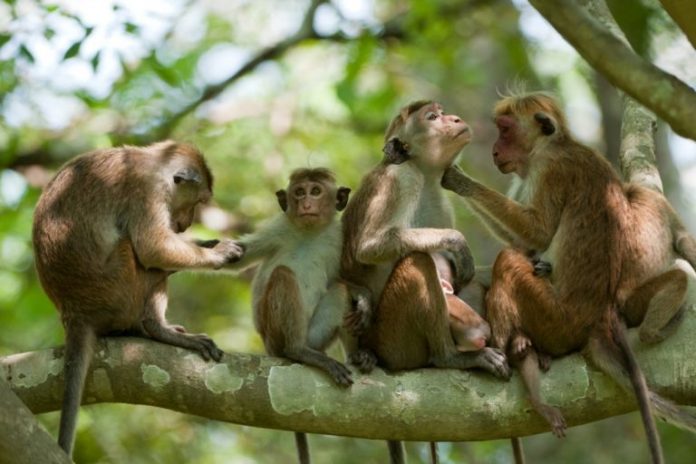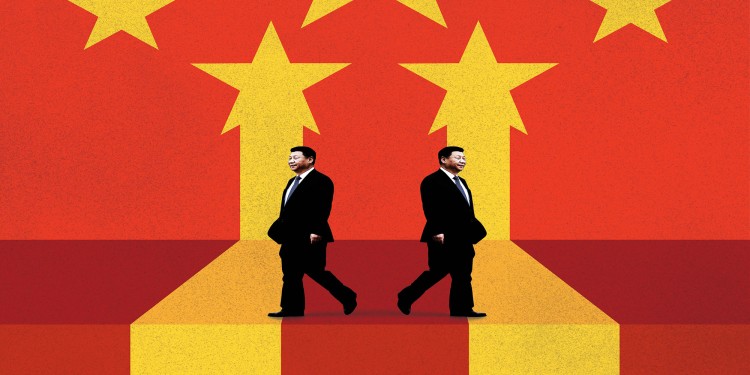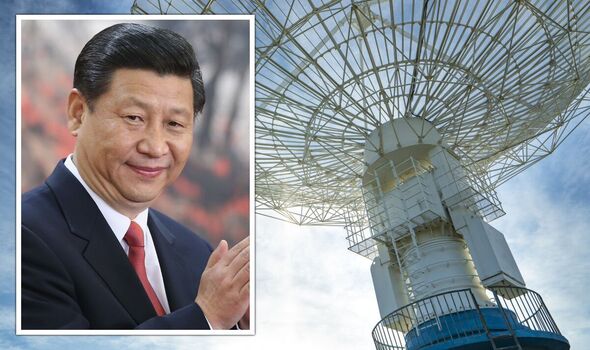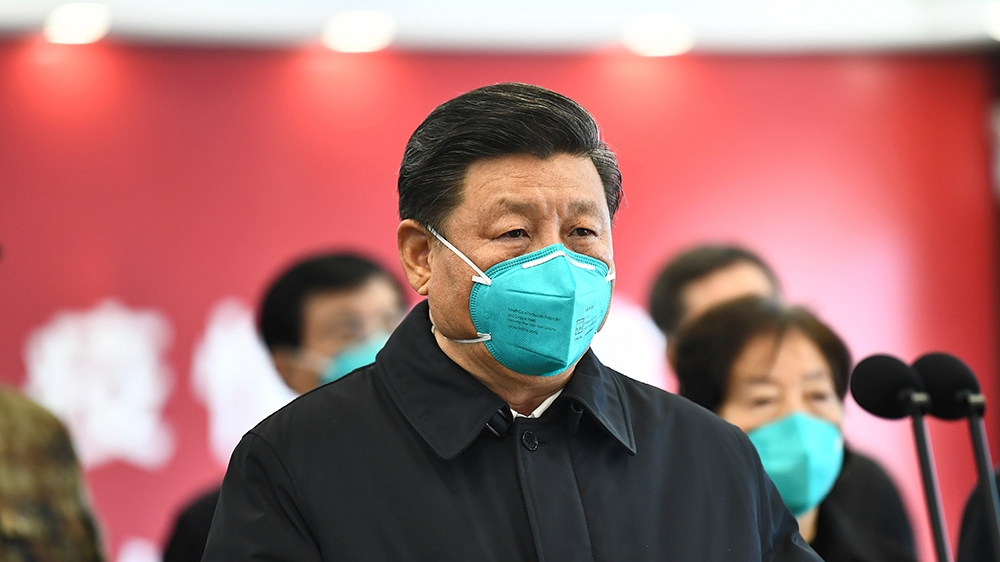Sri Lanka-China relations have become a fiery argument over monkey business. Sparking protests from animal protection groups and environmentalists after Sri Lankan agricultural minister Mahinda Amaraweera announced that the government is considering exporting 100,000 monkeys to China. The steps should be taken to appoint a committee with the approval of the Cabinet to read the legal position about the provision of Sri Lankan toque monkeys to a foreign country, and the committee should include officials from the ministry, the zoology department, the wildlife department, and the Attorney General’s department, the minister pointed out.
Following this, the Cabinet Spokesperson and Transport Minister Bandula Gunawardane said this is not a discussion between the Sri Lankan government and the Chinese government but with a Chinese company. On April 19, following the media reports, the Chinese embassy in Sri Lanka stated that they were unaware of this proposal, and the embassy requested that the agriculture ministry provide them with related information.
Is it a Chinese drama? China’s private business reflects a drive for economic growth and greater Communist Party dominance. However, it is difficult to identify which Chinese private companies operate outside the shadow of the Chinese Communist Party (CCP). Xi Jinping’s message to the business community was that we are here to help you, but you must also help to heed us.
However, according to media reports, the agriculture minister has held three meetings with representatives of Chinese company regarding the export of monkeys to China. The Wildlife and Nature Protection Society of Sri Lanka (WNPS) claimed that it had learned that a Chinese company, the ‘Zhejiang Wuyu Animal Breeding Co., Limited’, had been registered as a new company in 2021. Was the Chinese Embassy in Colombo not aware of these meetings?
The toque macaque is a commonly found monkey in Sri Lanka. The Sri Lankan Toque Macaques (Macaca sinica) are the smallest species of Macaca, a golden-brown-coloured monkey endemic to Sri Lanka. Locally known as the “Rilawa”, it is easily distinguished by the toque-shaped swirl of hair on the top of its head, with the amount of hair on the top being geographically variable within its range.There are three recognized subspecies of Toque Macaque: the dry zone Toque Macaque (M.s. sinica), the wet zone Toque Macaque (M.s. aurifrons), and the highland Toque Macaque (M.s. opisthomelas).
Wildlife conservationists and environmentalists have spoken out against the government’s moves. Many prominent zoologists and activists weighed on the government’s decision. Leading primatologist and President of the Primatological Society of Sri Lanka (PSSL), Dr Jinie Dela, said this was a very ill-advised move.
Sampath Seneviratne, a member of the Wildlife and Nature Protection Society and a professor of zoology at the University of Colombo, pointed out that the toque macaque is endemic and not exposed to diseases. So, there is a demand for them in the biomedical world, not just in legal biomedical testing but also underground laboratories.
Sri Lanka could not export animals for money as we have signed an agreement not to engage in the sale of wild animals, environmentalist Nayanaka Ranwella specified. He added that a special meal preparation method is underway in China that involves eating the monkeys’ brains in raw while they are still alive.
However, the political content of this move was not detected. Because this is not only about wildlife protection, environmental issues, or monkey business; instead, it is an example of how ‘dump bets’ on China can degrade the country’s image.
China has been using the internal crisis of vulnerable countries and the abuse of power by political elites as a trump card to increase its influence in these countries. Given this background, countries’ vulnerability is a tool for China’s expansion strategy. Sri Lanka is now a textbook example. The Carnegie Endowment for International Peace puts it: Three pronounced systemic vulnerabilities: brittle state institutions, weak civil societies, and a high potential for elite capture and corruption.
Sri Lanka was in such a position throughout the Rajapaksa clan’s reign from 2005 to 2015. China has sneakily exploited the family power business for its long-term strategy. ‘It is clear that China did not exactly help Sri Lanka improve its infrastructure—it swamped the country in debt and has now gained significant economic control over the struggling but strategically placed nation, Brigadier General Robert Spalding explained in his book ‘Stealth War’.
However, the Sri Lankan political elite in the Deep South did not realize China’s true intentions toward small countries suffering from internal crises. On the one hand, the manipulation of a war victory and the sorcery of so-called economic growth, on the other, captivated Sri Lanka’s political and Buddhist elites.
Sri Lanka is presently confronting the effects of the insolvency of its dump bets on China. A country that takes pride in adhering to Buddhist principles supports monkey exports to gain profits. The crazy idea of a no-limit partnership with China propelled the country to that level. Sri Lanka is now an emblem of how unwise agreements with China can tarnish a nation’s image. Sri Lanka will never reap the benefits of seeking more deals with China; without a comprehensive economic plan. How did Sri Lanka end up bankrupt if previous deals with China benefited the country?
Nonetheless, despite such experiences, there is no evidence that the Sri Lankan political elite is wary of China’s ties. It has been reported that the Governor of the Eastern Province in Sri Lanka will sign an agreement between the Eastern Province and China’s Yunnan Province. The Governor has given the Chinese government her five-year plan for the eastern province to attract investors from Yunnan Province. China’s Yunnan Province has agreed to fully support the ISO 17025-certified Organic Products Laboratory to be constructed in the Kantale-Trincomalee district.
State Minister of Foreign Affairs Tharaka Balasuriya recently stated that Sri Lanka is keen to expand ties with Yunnan Province in China, which shares many similarities with Sri Lanka. Lanka’s ties to the Yunnan Province date back to the 15th century AD, when Admiral Zheng, born in Kunming, the capital of Yunnan Province, visited Sri Lanka as part of his voyages to South Asia and the Middle East, he added.
The Chinese Yunnan province, especially its capital Kunming, is famed for its cuisine, which involves spooning out monkeys’ brains while still alive.
http://www.adaderana.lk/news/89324/sri-lanka-keen-on-expanding-ties-with-chinas-yunnan-province
http://www.colombopage.com/archive_23A/Mar13_1678686692CH.php




